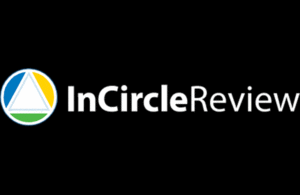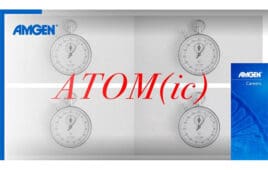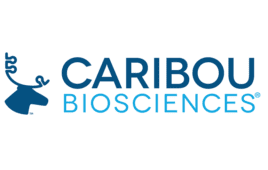 Suzette DiMascio is a prominent figure in the specialty pharmacy industry with nearly three decades of experience and a relentless commitment to improving patient access to care. Currently serving as Executive Vice President at the biopharmaceutical and plasma product supplier FFF Enterprises (Temecula, California), she also sits on several boards, including ICON International, Zensights, and OncoSpark.
Suzette DiMascio is a prominent figure in the specialty pharmacy industry with nearly three decades of experience and a relentless commitment to improving patient access to care. Currently serving as Executive Vice President at the biopharmaceutical and plasma product supplier FFF Enterprises (Temecula, California), she also sits on several boards, including ICON International, Zensights, and OncoSpark.
Throughout her illustrious career, she has won numerous awards, including the prestigious Dorothy Brothers Scholarship Award from the Women’s Business Enterprise National Council. While CEO of the company she founded, Suzette received the Commonwealth’s Top Women-Led Business for three consecutive years.
Beyond her professional achievements, DiMascio is an advocate for diversity and equity in the workforce and serves as a mentor to many women across the globe through her volunteer work with HBA’s Global Ambassador Program.
In the following interview, DiMascio discusses her work in the pharmaceutical industry, including the role of InCircle in specialty pharma. She also shares details about her passions for supporting and mentoring women in the industry.
The responses have been lightly edited for clarity.
What led to your current role of executive vice president at FFF Enterprises?

Suzette DiMascio
DiMascio: I had the opportunity to work with FFF Enterprises’ CEO, Patrick Schmidt, on various projects over the years. Together, we were at the forefront of helping health systems establish their own specialty pharmacies at the University HealthSystem Consortium (UHC), which has since merged with Vizient.
After I sold a company, Patrick reached out to me about the Insight study, which revealed that more than 67% of patients taking IG therapy were misdiagnosed. In addition, the therapy was often ineffective or masked other treatable diseases. I was compelled by the study’s findings and what Patrick wanted to bring to the market. When Patrick asked me if I would be interested in helping to commercialize the study’s results, I was honored and immediately accepted. Being part of an effort that helps patients access the best possible care has always been a personal passion of mine.
Could you tell us about InCircle and its role in specialty pharma?
DiMascio: InCircle is a clinical decision support tool that helps healthcare professionals determine which specialty pharmacy drugs are appropriate for which patients. These drugs can be expensive, and at times the path to diagnosis is fraught with many challenges. Our first program for InCircle is neurology-based. Dr. John Katz and Dr. Todd Levine, two world neuromuscular neurology experts, noticed that many patients on immunotherapies or IG therapy were not being diagnosed properly. It is very difficult to diagnose chronic inflammatory demyelinating polyneuropathy (CIDP).
The InCircle support tool brings together various data points to determine which diagnosis a patient has and if a patient will benefit from IG therapy. As a leader in the distribution of IG therapy and care, FFF knows that because it is plasma-derived, it is a scarce product. We want to make sure that the right patients are getting the right care, and InCircle helps do that.
We’ve conducted several pilots with leading health plans, and the results have been promising. The results lined up with our initial Insight studies.
We’re looking forward to launching the tool more broadly in Q2, and we’re confident that InCircle will help patients receive better care while also ensuring that these scarce products are used appropriately. I’d be happy to send you more information on the Insight study and our one-pagers to provide additional background on the tool.
What inspired you to become involved with the Healthcare Businesswomen’s Association (HBA) and their ambassador program?
DiMascio: I’ve always been passionate about helping others succeed, which stems from my prior work at CSI Specialty Group, where we partnered with many leading specialty pharmacies and pharmaceutical manufacturers as a talent and consulting firm.
We saw what it took to assemble the best and brightest to lead and launch companies. What was particularly apparent, especially in the specialty pharmacy space, is a severe lack of female executives and leaders. This sparked my passion for mentoring women. That passion, in turn, led me to get involved with HBA, the leading women’s health care network leadership group in the nation.
I got involved with HBA after the developer of the program, Bonnie Lappin, reached out to me. Fast forward to today, and HBA is now active in more than 70 sites across 15 countries. It’s not just for women. Because the program focuses on diversity and inclusion, we also have men who are part of the program.
Companies select individuals for the program based on their potential to become high-profile individuals they want to groom within the organization rather than having them leave for other opportunities. The program runs for a year, during which participants learn how to get a seat at the table and build networks. It helps them develop an executive presence, and how to navigate their career successfully within their respective organizations.
We’ve seen great success in the program, with approximately 60% of the women in one cohort we worked with at a large life science company receiving promotions or advancements within 18 months. It’s great to see people blossom and learn new techniques to become more empowered in their careers within a matrixed organization.
Can you tell us about the Women in Specialty Pharmacy group?
DiMascio: The Women in Specialty Pharmacy group is a networking program that I started.
I was one of the founding members of the National Association of Specialty Pharmacy, established over 10 years ago by Gary Cohen, who unfortunately passed away. The association was created to serve as a sounding board for specialty pharmacies and clients, such as pharma companies with specialty products.
The association helped address the needs of specialty pharmacies, who in turn sought to help patients who require specialized drugs. In addition, the Women in Specialty Pharmacy group was established to bring together women from these organizations. We hold an annual conference and invite successful women like Nicole Malachowski, the first Air Force fighter pilot, to speak and share their stories.
We bring top women in to speak at these conferences once a year. They can enlighten other women as to their path and how they became successful. Many times, these women have overcome significant adversity. Nicole had to quit her career after contracting Lyme disease. By sharing their experiences, they provide insights to other women in the industry. The Women in Specialty Pharmacy program is primarily focused on networking and building connections.
How much progress do people think was been made in terms of gender equity in the pharma industry?
DiMascio: In the past three years, I’ve seen a dramatic increase in the opportunities available to women in the pharma industry. This is being driven by leadership changes. Many companies now have diversity, equity, and inclusion programs. You are seeing a lot of chief diversity officers and chief HR officers becoming more aware of the issue. While there is still work to be done, the needle is definitely moving in the right direction.
From an HBA perspective, I’ve seen a lot more male leaders being more receptive to wanting to know what they can do to allow women to grow more in the organization. And that’s been a change categorically that I hadn’t seen up until the past three or four years.
I think a lot of times, women think that they have to act differently in certain male-dominated situations, and they don’t. They just need to be their authentic self.
COVID has also helped in this regard. Can you imagine the looks that women would have gotten years ago at a Fortune 500 company if they would have said, ‘I need to stay home because my baby is not feeling well.’ With COVID, more companies have adopted a hybrid workforce, which allows for a better work-life balance and greater flexibility. This approach has enabled companies to increase their staff without needing to invest in additional desks or office space, and it has opened up new opportunities for women to excel in the industry.
Can you say more about authenticity and why it is important?
DiMascio: Authenticity is crucial, and it’s essential for women in leadership positions to encourage their teams to be themselves and to allow them to shine in their unique way. I believe this is a theme that we’re seeing across the country, where people are no longer afraid to be their authentic selves, and that’s a positive step forward. It’s important to create a work environment where everyone can succeed and thrive, regardless of their gender or background. I believe that this approach will help create a more diverse and inclusive workplace.
What can we do to promote more young women in the pharma industry?
DiMascio: It’s interesting. What I’ve seen in pharma is that depending on which division you’re in, it really determines the altitude that you can take your career. For example, women in the manufacturing side of pharma, versus the commercial side, or brand, marketing, or sales, have more limited opportunities to grow within their organization.
It may just be that there are not as many women who are interested in the manufacturing side of the pharma industry. Definitely, that area tends to be more of a hurdle. I think the focus on STEM programs in schools is opening the eyes of many young women, and that is exciting.
Overall, I think there is a lot of excitement around rare and orphan diseases, and that has ignited more interest in younger women to join the pharma industry. They are seeing amazing breakthroughs. In my lifetime, I have seen a cure for Hepatitis, treatments for Duchenne muscular dystrophy, cures for some types of cancer, and genetic therapies for Pompe disease and other conditions. Now we have some promising drugs for Alzheimer’s and ALS. We’ve seen continued progress in genomic sequencing and the understanding of the origins of these diseases. There are gene therapies that could do wonders for hemophilia. It’s a wonderful time to be in the industry.
Additionally, we can create more drugs that can help people with rare diseases. I think this is a great time to be in the pharma world. That fact has spurred more women to join the field because there is always something new and innovative happening.
One of our colleagues at FFF Enterprises contacted me and our CEO. He had a nephew who unfortunately had a brain tumor. They told his parents he had six months to live and there was nothing they could do. They couldn’t operate. I reached out to my network and found some clinical studies he could potentially join. Long story short, they discovered the tumor was, in fact, operable. They removed the tumor and gave him a cancer vaccine. The tumor is almost gone, and this ten-year-old has a chance to live a normal life. It was a miracle.
What challenges keep you up at night?
DiMascio: It’s exciting to see the advancements in the pharma industry. However, one of the challenges that keeps me up at night is how to ensure that the right patient gets access to the right drug at the right time. This is where FFF shines, and our CEO’s mission of leaving no patient behind. That’s why I am passionate about InCircle. The program helps connect patients with the right drug based on the correct diagnosis. InCircle has helped identify cases where patients who were thought to have CIDP actually had familial ALS, a death sentence. These patients didn’t get the right diagnosis and subsequently didn’t have the opportunity to plan their life.
With specialty drugs becoming increasingly expensive, InCircle is positioned to tame the Wild West. We want to work hand-in-hand with insurers to ensure that patients receive the right treatment for their condition.
Can you explain how the InCircle algorithm works?
DiMascio: Absolutely. So we’re thrilled to work with Dr. Katz and Dr. Levine. I mean, they’re two of the top neurologists in the entire country, probably in the world. They see these cases that nobody else can diagnose. And with their brain trust and the great team that we’ve assembled at InCircle, we’re able to put this algorithm together that uses the best and the brightest.
The nice thing is that it serves as an opportunity to train or to give insight to doctors who may not always see these kinds of cases. We hope that our InCircle review tool can help patients get the right treatment and also help the treating physicians understand the reasoning behind it. Maybe they can learn from the clues they missed and diagnose the next patient better. That would be paying it forward.
What is one piece of advice you’d give to someone looking to advance their career in the pharma industry?
DiMascio: I think women in general need to lift each other up more. I think men network differently and they are more willing to offer a hand to another man to get a seat at the table.
Women tend to be more competitive and less supportive. They don’t embrace the fact that when Mary gets a promotion, it opens up the door for someone else to take her place and the ladder continues to grow. I think women need to be very honest with their dreams and pursue their career goals without letting stereotypes or the chatter affect their climb.
I think women should find mentors who can guide them in their careers. Sometimes women who are just starting out are often hesitant to ask someone in authority to be their mentor.
You need two mentors for your career: one inside your company who can help you navigate the organization, and an external mentor who can help you navigate your career. It’s rare to find one person who can do both.
I always encourage women to get two mentors and to reach out to someone they admire. You can use tools like LinkedIn to connect with executives in pharma companies. If you ask pharma executives if they have 10 minutes to share their story with you, I bet most of them will respond positively. At one point, someone did that for them once and they paid it forward. I think you should reach out to people who impress you, who make a difference in the industry. It is helpful to find someone you want to learn from. You never know where that can lead you.
Filed Under: Women in Pharma and Biotech





Tell Us What You Think!
You must be logged in to post a comment.